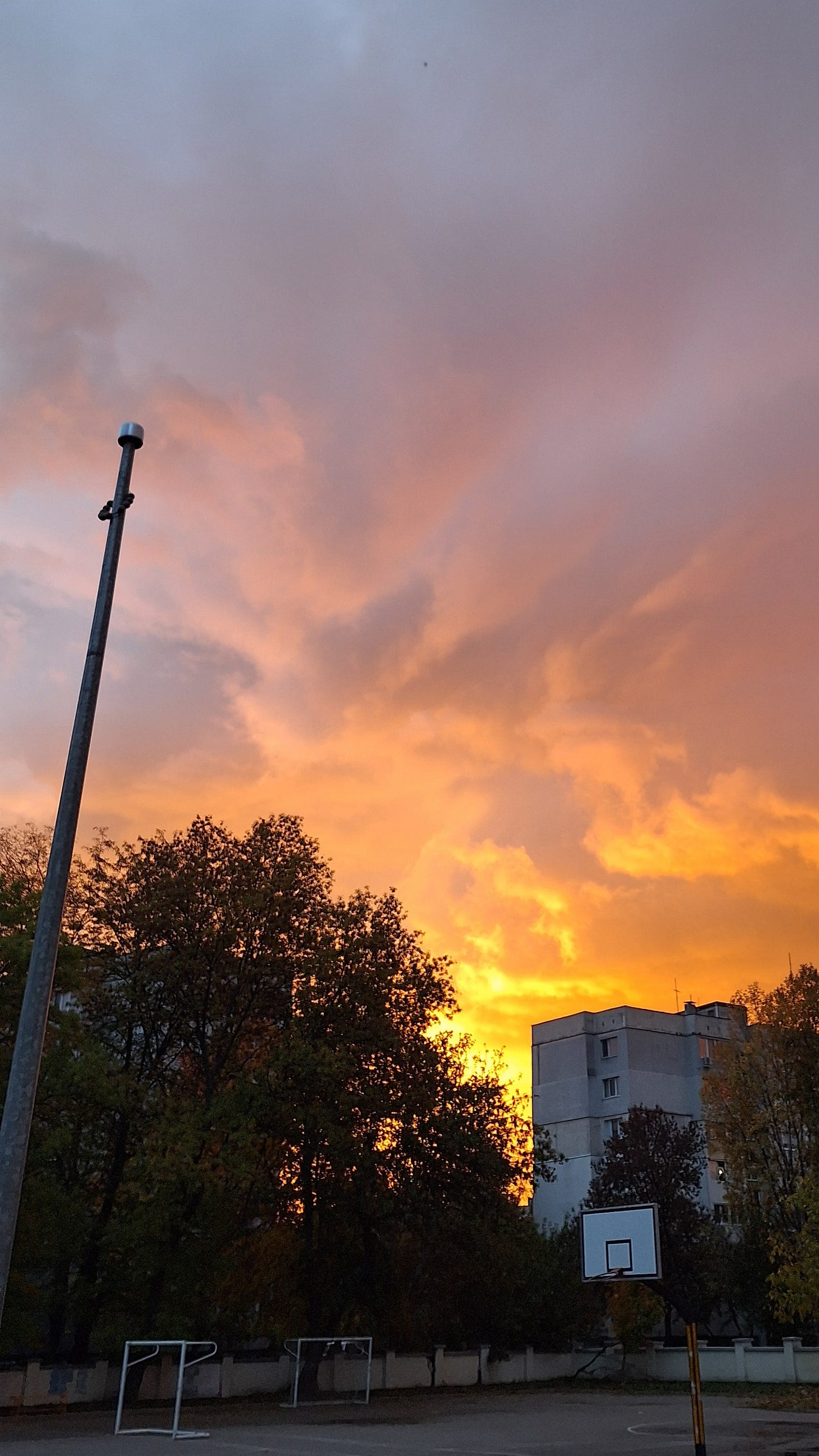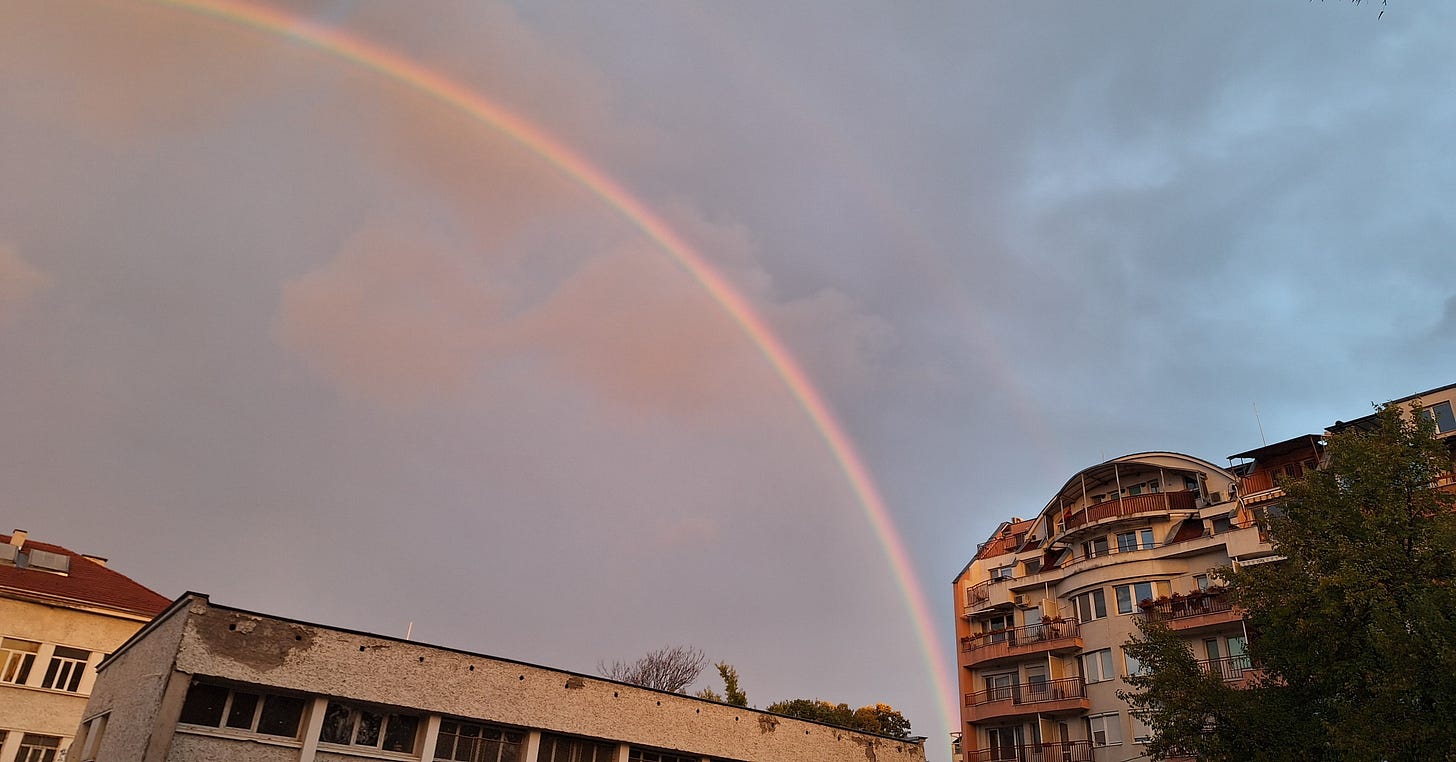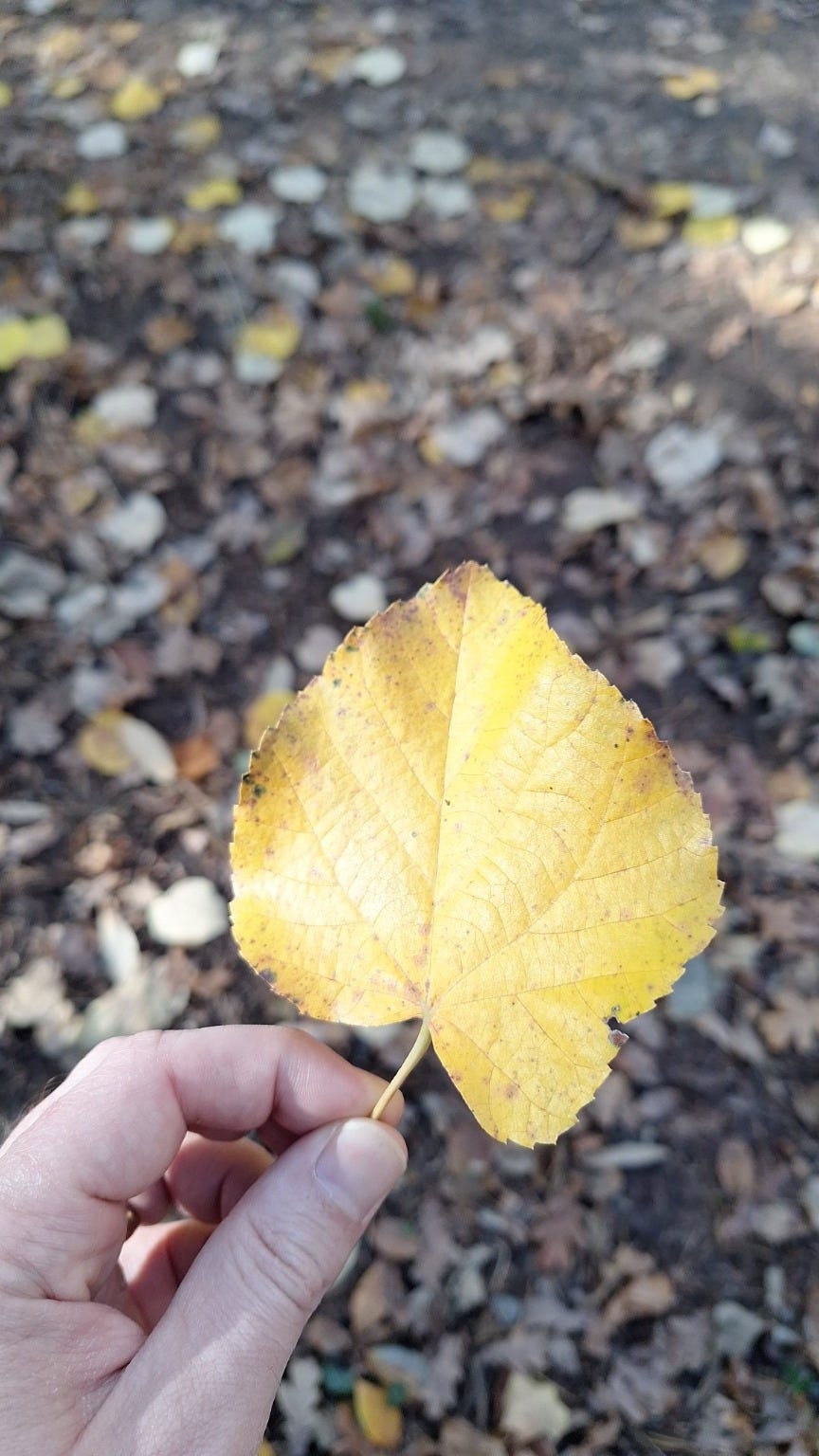Even Lifting
October Newsletter
I was somewhat dissipated on a Friday afternoon, pottering around, waiting for my Aeropress to drain, when Pavlina called.
Friday is when I catch up. I write outside my current book project and spend a couple of hours dealing with the week’s pile of 5-minute tasks. I prepare the experimental classes I teach to Pavlina’s employees. I do the laundry and finally get a full work-out in. I don’t schedule any other classes that day, so I should have plenty of time, which is dangerous.
On a Monday, I might not have time to do anything fun, like derive the pronunciation rules for a future dialect of English spoken in Orbit in the twenty-third century (try it!) On a Friday, though, I indulge.
I indulged hard. I opened the Speech Accent Archive at eight and pulled myself away at two. On other days, I’ll channel my create energy into writing a scene or an essay in a couple of hours. On this Friday, I dissipated it into a long list of sound changes. Imagine hooking a water jet cutter up to a shower head. PSH!
Which reminded me I needed to take a shower. And work out, and deal with the cat box, laundry, dishes, and my classes for next Monday. Most importantly, I had the experimental class coming up in an hour and a half and I hadn’t finished designing it. I told myself I still had time, and I did, but my head was still spinning, and mostly filled with phonemes.
What I really wanted to do was figure out how to code “/t/ and /d/ become flaps between sonorants.” I made myself coffee and tried to stand strong against temptation. I like to think I would have really prepared for that class, if Pavlina hadn’t called me.
“Dan, I need you to come to Druzhba. Dyado Kolyu has fallen and we need you pick him up.”
I grabbed the Aeropress. “What about the security guard?” He’d helped before.
“No, he’s useless. Take a taxi and come.”
Pavlina’s grandfather has senile dementia, and her grandmother has bone spurs. Pavlina, her cousin, her mom, and her aunt all rotate through the apartment, making sure the grandparents are never alone. They’ve hired a caregiver, but none of them can lift the grandpa off the floor. “Isn’t there any other man in the apartment building?”
“No. Nobody will help. Dyado Kolyu screams. They just won’t do it.”
“It’ll take me half an hour to get there.”
She told me she’d also called her mother and her cousin’s husband, but they were further away than me. I had to come now.
“You’ll have to cancel our class.”
“No, I won’t. You have time. Come.”
I chugged the coffee and called the taxi.
When they aren’t in their village in western Bulgaria, Pavlina’s grandparents live in an apartment in Druzhba - “Comradeship” - a late Communist-era neighborhood with a little lake and a view of Sofia’s handful of skyscrapers. It requires a bit of negotiation to get there from my house by car during the day, but I arrived no more than thirty minutes later.
There Pavlina’s grandpa was in the apartment, on the floor just outside the bathroom. He’d slipped while being escorted out of the shower, and Pavlina and her grandma had spent the next hour or so trying to find someone to lift him. When that didn’t work, they’d dressed him and surrounded him with pillows. Pavlina’s grandma hobbled in circles in the living room, shouting contradictory orders, while the old many looked owlishly up at me.
Dementia teaches you a lot about habit. Dyado Kolyu often asks who I am, and needs to be reminded that I’m Pavlina’s husband. He used to remember Pavlina as a college student, but now he mistakes her for her mother. He is habituated to me, however. He’d yelled and scared off the strangers Pavlina had brought to lift him, but when I held out my hands to him, he took them immediately.
“You can’t lift him that way,” said Pavlina. “Do you need help? Should I push on his back? Babo, tiho!”
“I’m not lifting him. He just grabbed my hands. It’s okay. Where are we putting him?”
“I don’t know. I’ll get his walker. Just a second. I come help lift him. Babo, mlakni!” It had been a long hour for them.
I walked my hands down the old man’s arms and found his armpits. Today I hadn’t worked out. The other days of the week, though, and the weeks before that, I’d maintained my discipline, and worked out. I lifted him.
Dyado Kolyu spends most of his time sitting, so his feet are swollen and round. Even with his legs under him, he couldn’t support his own weight. I just held him by the armpits until Pavlina arrived with his walker.
With the handles in front of him, habit took over. Dyado Kolyu let go of me, grabbed the walker, and thumped off to the living room. There, unaided, he lowered himself into his armchair and relaxed, watching the TV.
Baba Vesa was ebullient with relief. “Haide da slagam supa. Momcheto e gladen.”
I wasn’t hungry, but I ate some of her soup and talked with Pavlina, who called off the cousin’s husband and told me she’d cancelled our class after all.
Pavlina has in past told me that Dyado Kolyu is what success looks like. He’s near the end of his life, and disease has taken his mind, but he’s surrounded by his family, who love him. They bought him an apartment and make maintain through it a steady stream of food, medicine, heat, and grandchildren.
What more could you ask for? Eldercare bodily assistance robots? Pavlina is browsing Japanese websites, comparison shopping. Consciousness uploads? That won’t be you. Bodily Immortality? Brother, you’re not going to get it.
If I’m lucky enough to get as old as Dyado Kolyu, I’ll have to depend on my habits, too. Build your strength. Do what needs to be done. Be grateful. Someone will come and lift me up, too.
See you next month




